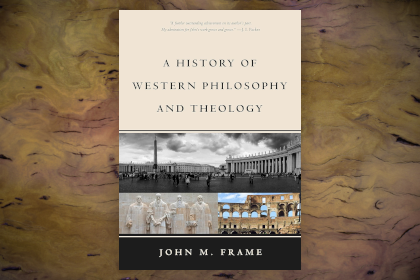Discernment and Revelation, Part 4: Concluding the Case for Cessationism
Image

(Read the series so far.)
The book of Hebrews enhances our understanding by detailing two periods in human history in which the Lord has spoken to mankind. Hebrews 1:1 proclaims that the first period was “long ago to the fathers and prophets in many portions and in many ways.” This is an obvious reference to the revelations given during the times of the Old Testament. In verse two the author of Hebrews cites the second period of divine revelation by simply saying that “in these last days [God] has spoken through His Son.” But as we know, Jesus Himself did not write down anything that He said. That was left to His followers and so, the author of Hebrews adds: “After it was first spoken through the Lord, it was confirmed to us by those who heard” (Heb 2:3) i.e. the apostles.
This, however, raises a practical problem. How did the people know that the communication they were receiving from the apostles was true? After all, many individuals made claim to being an apostle during the first century. The Lord would authenticate His true apostles by giving them the ability to perform “signs and wonders, and by various miracles and by gifts of the Holy Spirit” (Heb 2:4). When the Corinthians challenged Paul’s apostleship and authority, he pointed them to the “signs of a true apostle … [which were] signs and wonders and miracles” (2 Cor 12:12), just as the author of Hebrews confirmed.
The book of Acts verifies repeatedly that miraculous gifts were taking place through the apostles for this very reason (Acts 2:43, 5:12, 5:13, 9:38-41, 14:3, 14:8-9, 15:12, 19:11, 20:10, 28:8-9). The only exceptions were Stephen (Acts 6:8), Philip (Acts 8:6-7) and possibly Barnabas (Acts 15:12), all very closely associated with the apostles. We find no examples of the average Christian in the New Testament either performing miracles or receiving authoritative revelation. Miracles were for the purpose of authenticating the office of the men who would lay the foundation of the church. Once the foundation of the church was in place, the role of the apostles was no longer needed. With the death of John, the last of the apostles, gifts authenticating the apostles were no longer necessary and they ceased.
The ceasing of revelation
But did that necessarily mean revelation ceased as well? I believe the evidence of Scripture would indicate that it did. We start with 1 Corinthians 13:8-10, which clearly tells us that the day comes when prophecy and supernatural knowledge will be done away, and tongues will cease. Specifically Paul writes that “when the perfect comes the partial will be done away.” All Bible believers are ultimately cessationists, for this passage is clear that revelatory knowledge will cease at some point—that point being when “the perfect” comes.
Many believe that “the perfect” refers to the coming of Christ or the eternal kingdom. That is a possible interpretation, but the context is contrasting partial knowledge and revelatory gifts with that which is perfect. The best explanation in such a context would be that the perfect (or complete) is the completion of Scripture. In other words, when the revelation for this dispensation as recorded in the New Testament is completed the need for partial words of knowledge and prophecies would cease. That is, because the final, full revelation of the Lord for this dispensation has arrived, there is no need for additional messages from God. This seems reasonable, but did it happen?
Did “the perfect” come?
This understanding of the perfect in 1 Corinthians 13 is reinforced later in the New Testament by Peter, Jude, Paul and John. When the apostle Peter pens the inspired epistle we call Second Peter, he is desirous of reminding them of many things, especially that they “remember the words spoken beforehand by the holy prophets and the commandment of the Lord and Savior spoken by your apostles” (3:2). Peter did not point his readers to new or fresh revelation but to the words spoken previously by the prophets and apostles.
Jude offers similar understanding when in verse three he urges his readers to “contend earnestly for the faith which was once for all handed down to the saints.” A message had been given, a foundation laid once for all that had to be defended. How did they know what that message was? In verse 17 Jude answers, “But you, beloved, ought to remember the words that were spoken beforehand by the apostles of our Lord Jesus Christ.” The faith in verse three that was handed down to them, the faith that was to be defended and proclaimed, had been given to them by none other than the apostles.
As the apostle Paul writes virtually his last inspired words to his friend Timothy he points him to the Scriptures that are able to make the people of God “adequate, equipped for every good work” (2 Tim 3:16-17). In light of this lofty claim for the God-breathed Scriptures, Paul gives Timothy a final charge—to “preach the word” (4:1-5). There is no hint in Paul’s charge that Timothy is to seek additional revelation, listen to the prophecies or words of knowledge of fellow believers, or preach his own dreams or visions. He is to preach the Word handed down to the saints through the apostles. As the New Testament canon nears its close, the divinely inspired authors unite in pointing their readers to the apostles as the inspired human source of New Testament truth.
John’s close
The apostle John joins the chorus as he closes down the New Testament with a solemn warning against adding to or subtracting from this final revelation from God. He writes, “I testify to everyone who hears the words of the prophecy of this book: if anyone adds to them, God will add to him the plagues which are written in this book; and if anyone takes away from the words of the book of this prophecy, God will take away his part from the tree of life and from the holy city, which are written in this book” (Rev 22:18-19). Since this is the last chapter in the last book of the last Testament it is only reasonable to deduce that from that point on any addition of any prophecy would be adding to Scripture. With the death of John shortly thereafter, the last of the apostles had faded from the scene and with him the final word of revelation for this age. In addition there is no indication either the twelve apostles or the New Testament prophets were ever replaced (Rev 21:14).
The witness emerging from the Scriptures themselves is that God has chosen to communicate with mankind throughout history in specific and unique ways. He has chosen certain men at certain times to be prophets and apostles to speak and record divine revelation (Heb 1:1-2; 2:3-4). When God’s revelation was complete for this age, the ministry of the prophets and apostles was finished and we would expect no further communication at this time. This expectation is verified through the statements found in the Bible itself.
What we are seeing today is not new revelation from God but subjective experiences and, at times, deception. Let us cling tenaciously to “the faith which was once for all handed down to the saints” (Jude 3) rather than chasing the inferior, inadequate imaginations of those who claim a new word from the Lord today.
Gary Gilley Bio
Gary Gilley has served as Senior Pastor of Southern View Chapel in Springfield, Illinois since 1975. He has authored several books and is the book review editor for the Journal of Dispensational Theology. He received his BA from Moody Bible Institute. He and his wife Marsha have two adult sons and six grandchildren.
- 1 view
Appreciate the series. I don’t recall seeing before how Hebrews ties in. I remain less than 100% convinced that “the perfect” refers to the completed Scriptures, but the alternatives I’ve read of are, in my mind, even less certain.
Views expressed are always my own and not my employer's, my church's, my family's, my neighbors', or my pets'. The house plants have authorized me to speak for them, however, and they always agree with me.
[Aaron Blumer]I also am not sure that “the perfect” in I Cor 13 refers to the Scriptures. In fact, verse 12 seems to indicate the “the perfect” will be here when we can finally see “face to face” It says, ” For now we see in a mirror, dimly, but then face to face. Now I know in part, but then I shall know just as I also am known.” If the knowing “in part” is going to be over when we see “face to face,” wouldn’t that be referring to the Coming of Christ?Appreciate the series. I don’t recall seeing before how Hebrews ties in. I remain less than 100% convinced that “the perfect” refers to the completed Scriptures, but the alternatives I’ve read of are, in my mind, even less certain.
That is the usual argument for taking “the perfect” that way. And it’s a strong one. Gilley’s view—as well as MacArthur and many others—is that evidence elsewhere in the NT argues for taking it as completed Scriptures. (Along w/the—to me slightly awkward—parallelism between tongues & prophecy as forms of revelation and “the perfect” as possibly another form of revelation.) Add to that the difficulty that the chapter isn’t really about revelation, but the enduring nature of love.
Personally, I don’t see 1 Cor. 13 as decisive. But I count myself among cessationists because of the witness of the NT as a whole (as well as the OT pattern of relatively scarce prophetic activity) and the witness of Christian history. We just don’t seem to have anything close to the quality of tongues-speaking and prophetic revelations we see in the NT.
And I also find the logic compelling: the completion of the Scriptures is a unique event. We would have to expect there to be major changes in God’s revelatory work after turning that corner.
Views expressed are always my own and not my employer's, my church's, my family's, my neighbors', or my pets'. The house plants have authorized me to speak for them, however, and they always agree with me.
1Cor. 14.20-25 develops the argument that tongues were a sign for unbelievers. However the following argument makes no sense unless a certain class of unbeliever is in sight. Notice Paul’s use OT (written to Jews) and the phrase “this people” (amin) both references point to Jewish unbelievers.
This use indicates to me that these sign gifts were meant specifically for the formative period that established the distinction between true faith and fulfillment of prophecy verses Jewish intransigence and unbelief.
It could be that some of these “tongues” (true usage) expressed a mocking toward the unbelieving Jews since they were mocking Christians and Jesus. The “wonderful works of God” given at Pentecost could have had themes of the need to make decision for Christ in contrast to remaining in the developed corrupt Jewish understanding of self-righteousness.
So, for me, cessation makes more sense since now Christians and the Jewish religion is well differentiated. It was the Jews who correctly looked for a “sign” why would Gentiles today need a sign to determine the true faith?
"Our faith itself... is not our saviour. We have but one Saviour; and that one Saviour is Jesus Christ our Lord. B.B. Warfield




Discussion